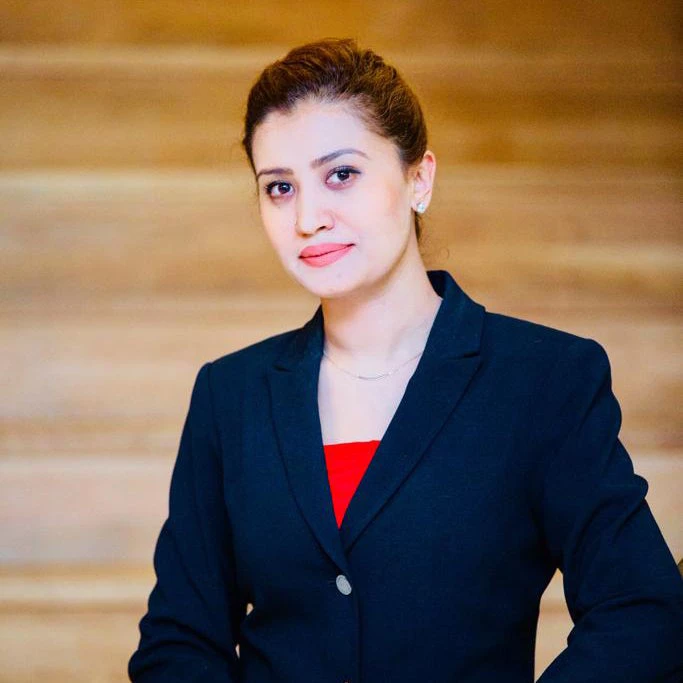 Aminath Waheed, the only female taxi driver in capital Male’, has been the victim of vandalism and harassment on countless occasions, but none of that has stopped her. Photo: NISHAN ALI
Aminath Waheed, the only female taxi driver in capital Male’, has been the victim of vandalism and harassment on countless occasions, but none of that has stopped her. Photo: NISHAN ALI
This year's International Women's Day marked the tremendous efforts women and girls have made in shaping a more equal future and recovery from COVID-19.
As part of our work to support South Asian women's and girls' empowerment, we invited last week three prominent women leaders from South Asia who have charted a path toward a more gender-equal world.
Here are highlights of their work and journey toward self-realization:
Gaisu from Afghanistan used to walk four hours a day to attend school and run a local radio program for young girls as a teenager. She realized that her voice mattered and that she had the power to shape the future of her young listeners, who were mostly girls.
Gaisu survived a child marriage and went on to pursue Human Rights studies at Columbia University, where she explored the complexities of discriminatory systems. Now, Yari is the Commissioner of Civil Services in Afghanistan and inspires more women to enter the civil service.
Asma Khan from India realized that, as the second daughter in her family, her decisions in life were already defined. Her mother had to face society's ire for giving birth to a daughter again. After a doctorate in British Constitutional law, Khan changed course, and she now runs the Darjeeling Express, an Indian restaurant in London. Khan also runs a charity, Second Daughters, which sends celebration packages to families for the birth of their second daughter and supports her education.
Ramla Qureshi from Pakistan was blissfully unaware of the gender norms in her society until she joined engineering school. As one of the four girls in a class of sixty, she challenged her professors' claims that the field was more suited for boys. Dr. Qureshi grew up in a family with five girls in a 'gender neutral' environment. Her mother taught them to be curious and to question everything. Today she is changing the mindset towards enabling women in STEM fields through her nationwide grassroots organization, Women Engineers Pakistan.
Schafer's grandmother owned half of their farm, and when his mother decided to study for a professional certificate, his father fully supported her decision. When he started working in development, he learned that not all women could access education, own land, or open bank accounts. Since then, he has made it a priority to help more women start a career and thrive professionally at the World Bank.
It's critical for women to take on leadership challenges
Gaisu, Asma, and Ramla work in fields dominated mainly by men.
Commissioner Yari notes that women in Afghanistan are held back in their leadership goals by the conflict situation and lack of training for women, access to resources, including shortages of computers.
Today, Asma Khan invests her time for women and girls. Her kitchen is full of middle-aged immigrant women from South Asia who are not trained chefs. She says these women "never had glory, never got paid and they are the most professional of all." Through her restaurant, she is starting conversations about the rights of women and racism. "They must get a seat on the table," she says. Along with early investment, mentoring and bringing together role models is crucial.
Dr. Qureshi brings all these elements together in her work with World Bank's South Asia Women in Power Sector Professional Network (WePOWER), a growing collaboration of over 27 partners promoting STEM education and employment opportunities for women in the energy and power sector. She hopes that women in STEM will be the norm in her country soon.
Investing in women and girls must be done early on
Hart Schafer emphasized the need to include men as allies to gender equality and support women leaders. Recalling a meeting with Afghan women leaders whose fathers' encouragement was crucial to their studying abroad, Schafer emphasized the need for men as fathers, brothers, colleagues to support women at critical junctures of their lives. As an institution, he shared that the World Bank is committed to investing early on in a women's career and amplifying the voices of women role models. "When you hear directly from role models—who are the advocates of their own communities and have overcome barriers—and lift them up, that's the best evidence for us."
In case you missed it, the recording is available on our Event Page and Facebook.
Photo Series: Showcasing inspiring South Asian Women Leaders








Join the Conversation